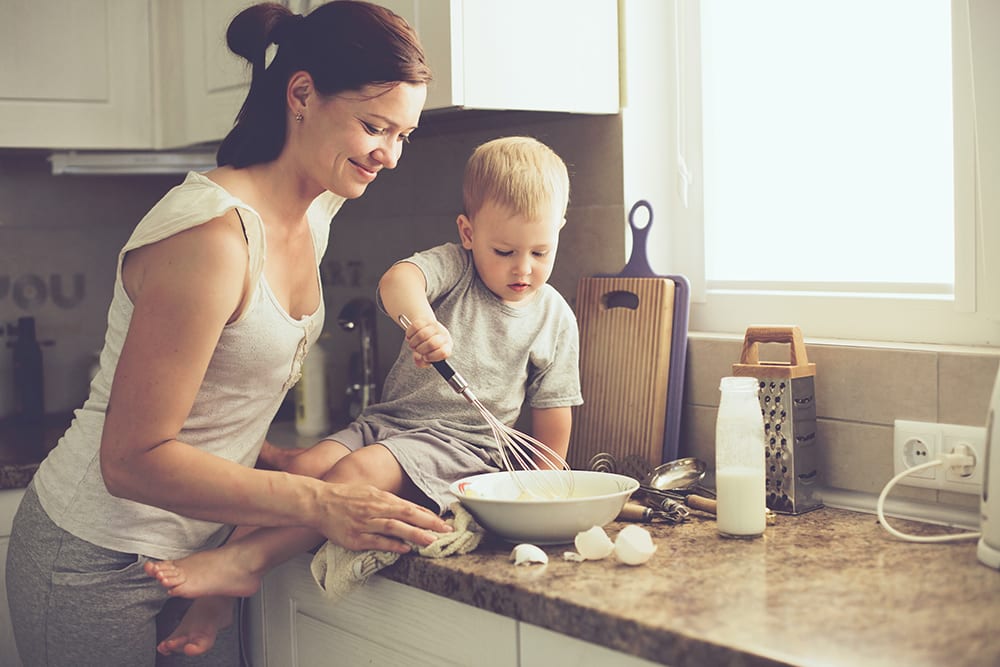
Here are 10 tips we use in the classroom and at home to make cooking with toddlers easier for everyone:
1. Keep it simple. There will be a time for making mousse and soufflé, but it is not now. Cutting up a banana or ripe fig can be just as satisfying as preparing multistep desserts that require for precision.
2. Let your toddler lead. Does your toddler love fruit? Let her select the ingredients for fruit salad. Toddlers are more likely to try things when they have control.
3. Start with basics. Think about the skills your toddler already has (can he cut playdough?) and needs (can he pour water into his cup?). Choose recipes that match his skill level. Make pretzels. Make popsicles.
4. Build up. Once she can cut fruit and pour liquid, you can combine those two skills into making smoothies.
5. Expand skills as his development permits. When you notice that he can resist tasting the raw ingredients, you can introduce cracking raw eggs for scrambling. When you notice he can resist touching hot things, he can help you put pasta in the pot. Keep in mind that every toddler develops impulse control at different rates.
6. Keep flavors plain. Many toddlers are put off by combined flavors. Invite your toddler to help you top her own pizza (you can buy premade dough). Offer choices such as tomato sauce, cheese, olives, and red peppers, and let her spoon up as much or as little as she chooses. Be open to the pizza as a process rather than an end product.
7. Prep and plan when possible. If you are trying a complex project like making muffins, pre-measure the ingredients into separate containers and have all your supplies ready before you invite your toddler over. This will allow you some control and prevent unanticipated dumping. Remember, the more steps the recipe has, the less likely your toddler can focus all the way to the end of the project.
8. Introduce literacy! Read books such as Stone Soup and then make soup. Write out the recipe with pictographs and your toddler can follow along, “reading” the recipe with you.
9. Invite your toddler to help clean up. Your toddler can “wash” plastic dishes in a bin of soapy water, sweep, and sponge up spills.
10. Eat your results and enjoy. Model healthy eating habits and your toddler may try them, too.
By Julia Luckenbill
Julia Luckenbill, MA, is a child development demonstration lecturer at the Center for Child and Family Studies Laboratory School at the University of California, Davis. Her interests include emergent curriculum, farming with toddlers, photography, and exploring the world with her daughter.
© 2016 National Association for the Education of Young Children — Promoting excellence in early childhood education